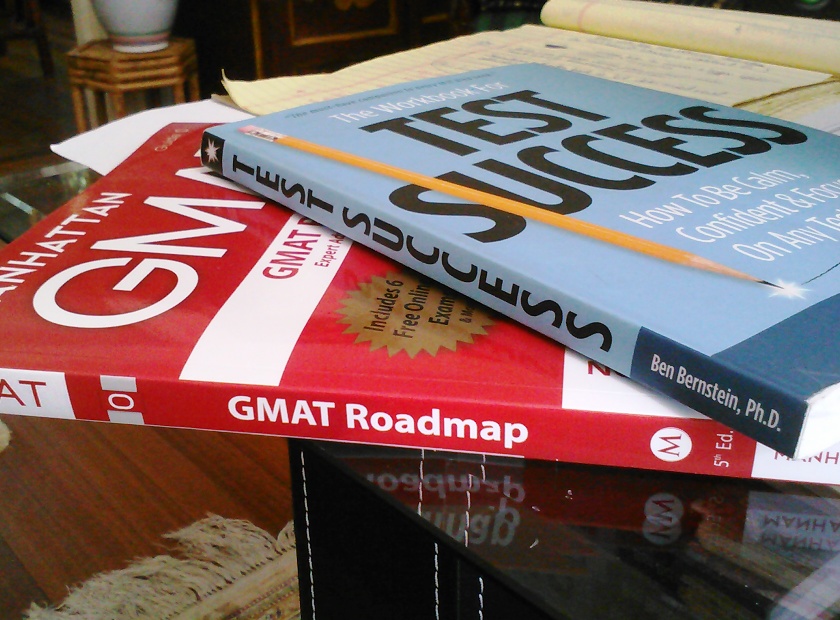What You Can Do NOW to Boost Your MBA Application
With deadlines for MBA applications about six months away, you might think there’s not much you can do to prepare right now other than take the GMAT or GRE. Even if you’re planning to apply to schools next year, you may think that your profile as a candidate is already set in stone.
But the truth is, you can always improve—and whether you’re a few months or years out, you’ve got time to plan your campaign and enhance your application. Admissions officers are looking for several key things—ability to handle academic rigor, career progression, and leadership potential. “Virtually every MBA program looks for students who exhibit intellect and leadership,” writes Derrick Bolton, Director of MBA Admissions at the Stanford Graduate School of Business
Here are three concrete ways you can demonstrate your potential to admissions officers—and even beef up your future employability, too.
Take Undergraduate Quant Classes
Because business schools are very quantitative, they want to know that you can do the work that’s required. Plus, potential employers will be happy to see that you can handle numbers as well.”We want to be sure that you will be able to handle the rigor of Tuck’s quantitative program.” says Pat Harrison, associate director of admissions at Dartmouth’s Tuck School.
You might think your GPA, that C+ in economics, or the fact that you’ve never taken calculus will doom you—but that’s not the case. You can take an online calculus or business statistics class from any number of accredited universities now, and use those grades on your business school applications. In many cases, accredited, graded courses can mitigate a less-than-perfect undergraduate record.
Another option is a specialized pre-MBA program, like the Tuck Online Bridge program, which offers courses in a number of disciplines, including managerial economics (statistics). If you’re just trying to beef up skills and don’t care about a grade, take a look at MBA Math, which offers very practical lessons in financial math, statistics, accounting, and microeconomics.
Demonstrate Your Career Progression
Admissions officers and potential employers are looking for people who have moved forward and will continue to advance in their careers. Chicago Booth’s evaluation criteria includes “track record of success, resourcefulness,and sense of personal direction.” Success doesn’t necessarily mean title advancement—rather, it’s about taking on an increasing level of responsibility. And not just when it’s offered.
Naturally, if your boss assigns you to spearhead a new product, run with it. But if that opportunity isn’t handed to you, you can volunteer to mentor new employees on your team, or develop an outreach program to educate internal clients about your group’s initiatives.
You can also ask for additional assignments that might teach you about a different part of the company. As long as your boss doesn’t think you’re leaving your current assignments unfinished, see if you can broaden your experience. Ask to join an existing firm-wide committee, or simply offer your services when you see someone else feeling overwhelmed.
These are little things that can expand your influence within your current position and propel you to a promotion, whether it’s official, unofficial, or even into another company. And even if you don’t get that promotion before you turn in that b-school application, the extra responsibilities and your initiative will reflect well on you.
Expand Your World
You can also look outward to the community to increase your leadership experience. “Our students…have to be seen as people who are creating value in society,” said Harvard Business School Dean Nitin Nohria. I’m not suggesting that you merely add to your list of extra-curricular activities—the way you are involved in an activity can tell an admissions committee member more about you than can a lengthy list of organizations. So, look at what you’ve already been involved in and where you can deepen your leadership role and have a greater impact on your organization.
If you’ve been tutoring at-risk youth, for example, you might create and implement a strategic plan to bring on more volunteers to your group. Or if you’ve been raising funds for an annual 10K, you could develop relationships with corporate sponsors who may be able to help year after year. These types of activities can illustrate your initiative and long-term planning skills, and can be incorporated into the stories you tell in your essays.
As a business school applicant, you always have the potential to learn and grow—even in the months before you apply. Continuing to add to your portfolio of skills and achievements as you’re selecting schools and studying for the GMAT will show a propensity toward mature leadership—and that’s something admissions officers can’t wait to read about.




